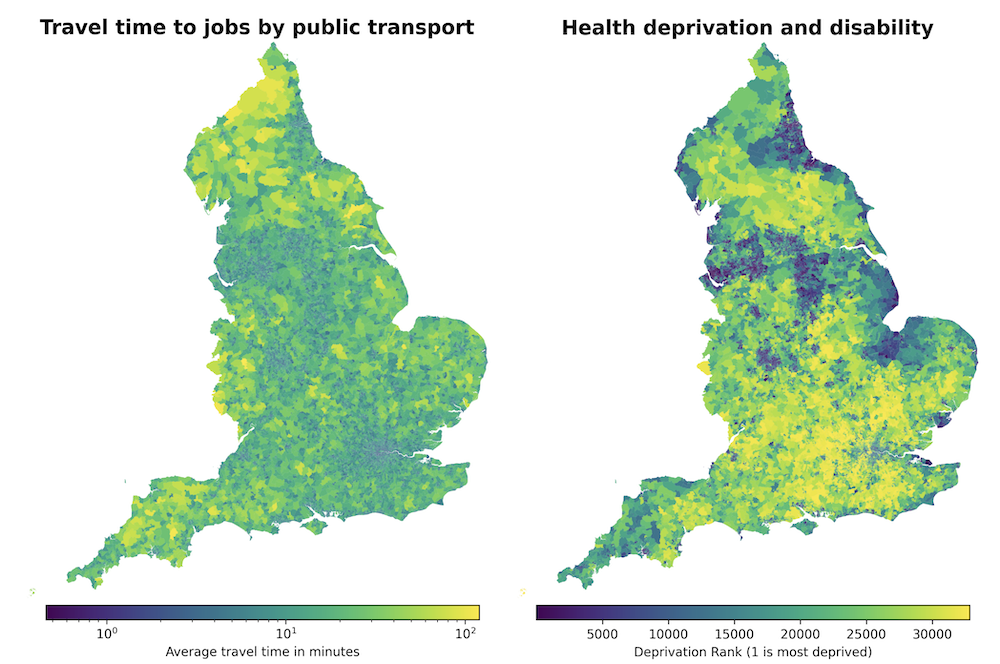Abstract
The effective and ethical use of data to inform decision-making offers huge value to the public sector, especially when delivered by transparent, reproducible, and robust data processing workflows. One way that governments are unlocking this value is through making their data publicly available, allowing more people and organisations to derive insights. However, open data is not enough in many cases: publicly available datasets need to be accessible in an analysis-ready form from popular data science tools, such as R and Python, for them to realise their full potential.
This paper explores ways to maximise the impact of open data with reference to a case study of packaging code to facilitate reproducible analysis. We present the jtstats project, which consists of R and Python packages for importing, processing, and visualising large and complex datasets representing journey times, for many modes and purposes at multiple geographic levels, released by the UK Department of Transport. jtstats shows how domain specific packages can enable reproducible research within the public sector and beyond, saving duplicated effort and reducing the risks of errors from repeated analyses. We hope that the jtstats project inspires others, particularly those in the public sector, to add value to their data sets by making them more accessible.
Citation
@misc{botta2023packaging,
title={Packaging code for reproducible research in the public sector},
author={Federico Botta and Robin Lovelace and Laura Gilbert and Arthur Turrell},
year={2023},
eprint={2305.16205},
archivePrefix={arXiv},
primaryClass={cs.CY}
}